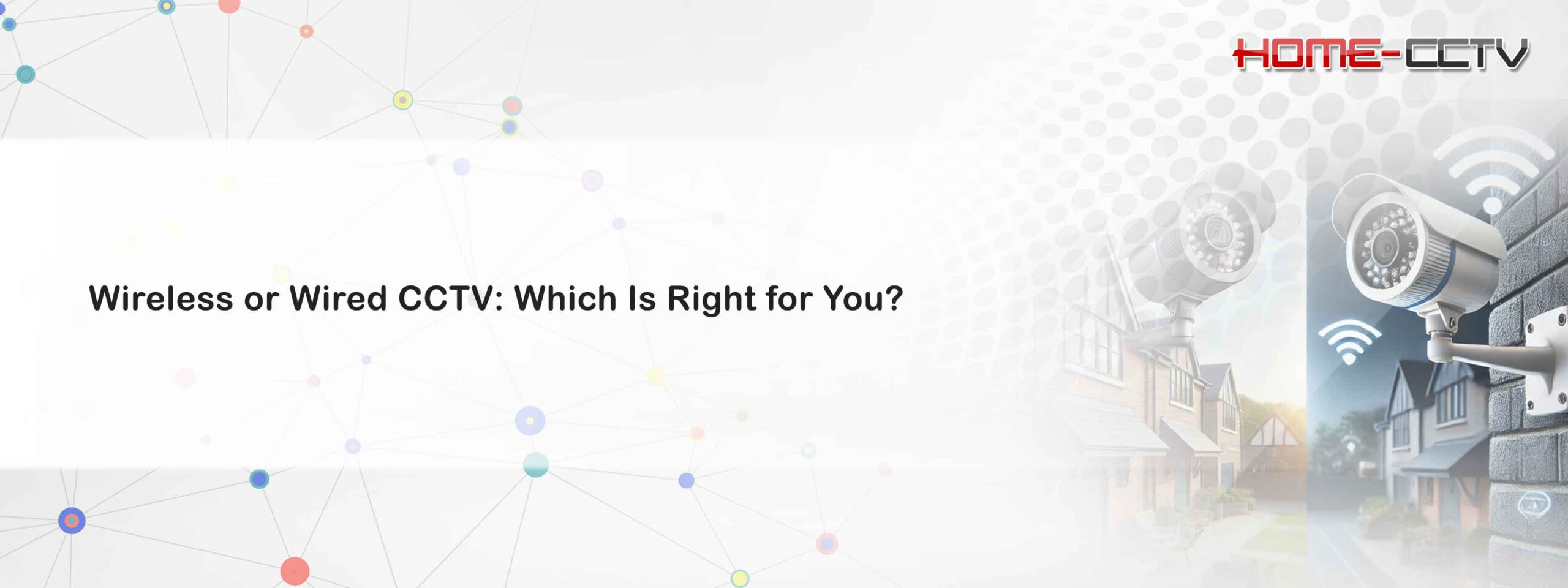When it comes to protecting your home, choosing the right CCTV system is a crucial decision. Whether you opt for a wired or wireless setup, understanding the advantages, disadvantages, and key features of each option can help you make an informed choice. This guide compares wired and wireless CCTV systems to help UK homeowners decide which best suits their property and lifestyle.
1. Understanding Wired CCTV Systems
Wired CCTV systems use physical cables to connect cameras to a central recorder and power source. These systems are known for their reliability and consistency.
Advantages of Wired CCTV Systems
- Reliable Connection: Wired systems deliver a stable, interference-free connection, ensuring uninterrupted video quality.
- Higher Security: Since data is transmitted via cables, these systems are less vulnerable to hacking or signal interception.
- Ideal for Larger Properties: Wired systems support multiple cameras spread over wide areas, making them suitable for bigger homes.
Disadvantages of Wired CCTV Systems
- Complex Installation: Installing wired systems often requires drilling and professional assistance, which can be time-consuming and invasive.
- Lack of Flexibility: Once installed, repositioning or adding cameras can be difficult.
- Power Dependency: These systems rely on a constant power source, so power outages may render them temporarily inoperative without a backup.
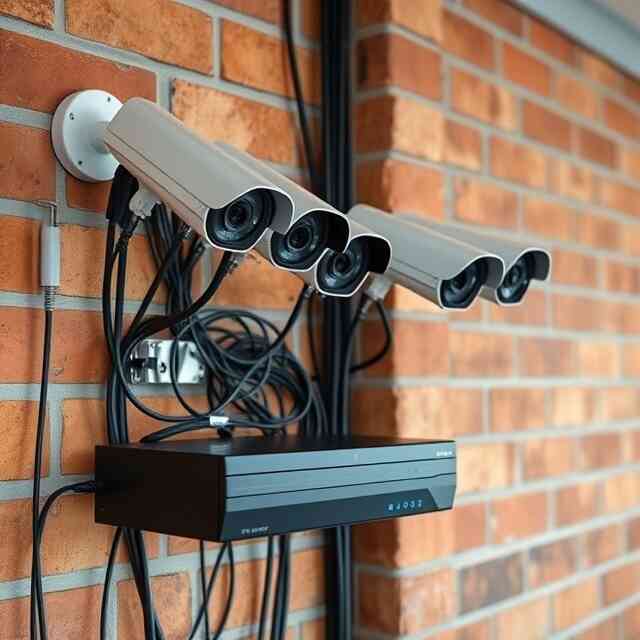
2. Understanding Wireless CCTV Systems
Wireless CCTV systems transmit footage via Wi-Fi. While they are not entirely wireless (most cameras still need a power source), their connectivity eliminates the need for extensive cabling.
Advantages of Wireless CCTV Systems
- Easy Installation: Wireless systems are quicker and simpler to set up, often suitable for DIY enthusiasts.
- Flexible Placement: Cameras can be easily relocated or adjusted to cover new areas.
- Aesthetic Appeal: With fewer visible cables, wireless systems provide a cleaner, modern look.
Disadvantages of Wireless CCTV Systems
- Wi-Fi Interference: Wireless systems can experience signal disruption due to interference from other devices or weak internet connectivity.
- Security Concerns: Without proper encryption, wireless systems can be vulnerable to hacking.
- Limited Range: Cameras may struggle to maintain a connection if they are too far from the router.
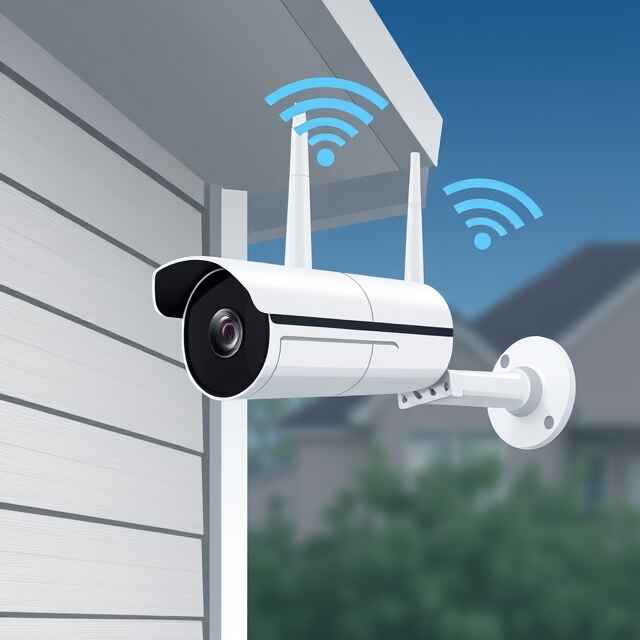
→Take a look at our collection of AHD CCTV Cameras also IP CCTV Cameras
3. Key Factors to Consider When Choosing
Choosing between wired and wireless CCTV systems depends on your specific needs. Here are the key factors to evaluate:
Property Size and Layout
- For large properties with multiple surveillance points, a wired system is usually better.
- For small to medium-sized homes, a wireless system may be sufficient.
Installation Budget
- Wired systems often involve higher upfront costs due to professional installation.
- Wireless systems, while easier to install, might have higher ongoing costs if cloud storage is required.
Future Scalability
- Wired systems can handle more cameras but require additional cabling.
- Wireless systems offer easier scalability but depend on the strength of your Wi-Fi network.
Aesthetic Preferences
- Wired systems may have visible cables, which could be less visually appealing.
- Wireless systems provide a cleaner look with minimal disruption.
Internet Reliability
- If your home has a strong, stable Wi-Fi connection, a wireless system can work seamlessly.
- For areas with weaker internet signals, wired systems are more reliable.
4. Legal and Privacy Considerations in the UK
Before installing any CCTV system, ensure compliance with UK laws to avoid legal issues:
- Data Protection Act: Ensure that any footage recorded is stored securely and used only for legitimate purposes.
- Neighbour Privacy: Cameras should be positioned to avoid capturing areas outside your property, such as neighbours’ homes or gardens.
- Signage: If cameras are monitoring public spaces, signage should notify people that CCTV is in operation.
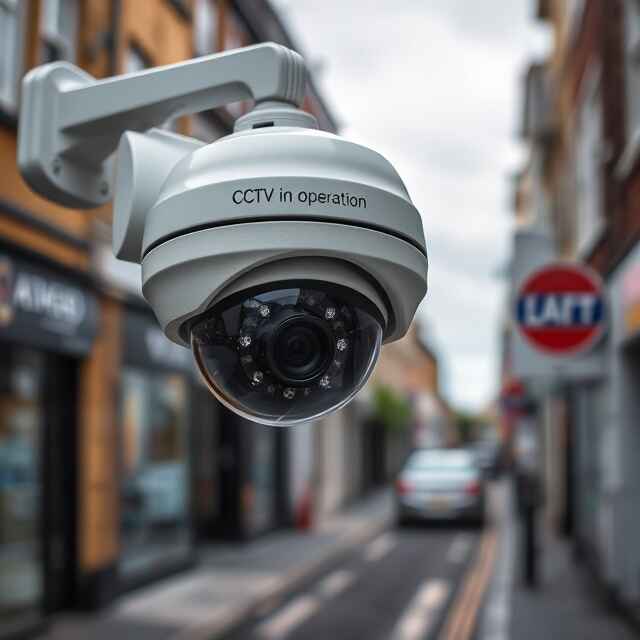
5. Maintenance and Longevity
Wired CCTV Systems
- Cables: Periodically check for wear and tear, especially if cables are exposed to the elements.
- Power Supply: Ensure power sources are reliable and consider a backup power option.
Wireless CCTV Systems
- Firmware Updates: Regularly update the system’s software to protect against vulnerabilities.
- Battery Maintenance: For battery-powered cameras, monitor battery health and replace when needed.
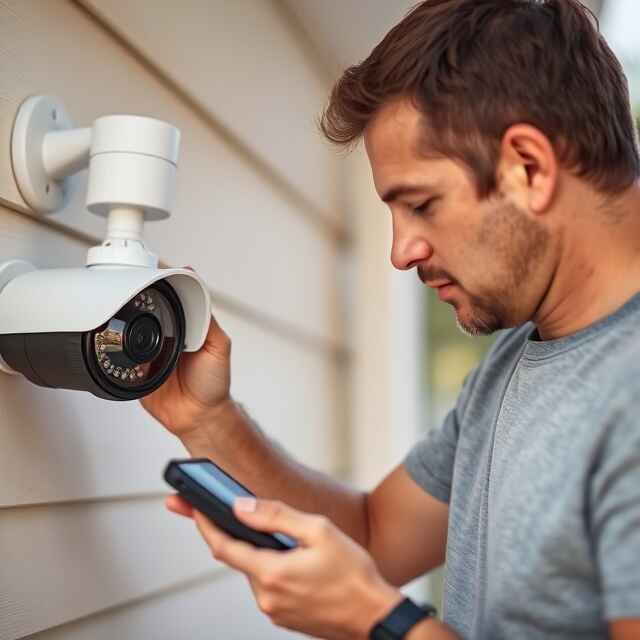
6. Cost Analysis
Initial Costs
- Wired Systems: Tend to have higher equipment and installation costs due to professional setup and extensive cabling.
- Wireless Systems: Generally lower upfront costs, especially if opting for a DIY installation.
Ongoing Costs
- Wired Systems: Minimal ongoing expenses; storage is often handled locally via a DVR or NVR.
- Wireless Systems: May involve subscription fees for cloud storage or enhanced app features.
Please contact us for any of your query and information needed. Thanks!



